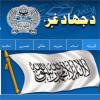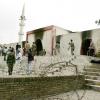India: Impending Taliban Threat and Response
For India’s military, the Taliban is a threat looming large on the horizon. The perception of the Taliban making inroads to India has increased since December 2008, when Tehrik-i-Taliban Pakistan (TTP) chief Baitullah Mahsud vowed to fight alongside the Pakistan army if a conflict broke out between India and Pakistan. The verbal threat has since been underlined by the Taliban’s eastward movement inside Pakistan, from its bases in the North-West Frontier Province (NWFP) to the city of Lahore, close to the Indian border in Pakistan’s Punjab province.







